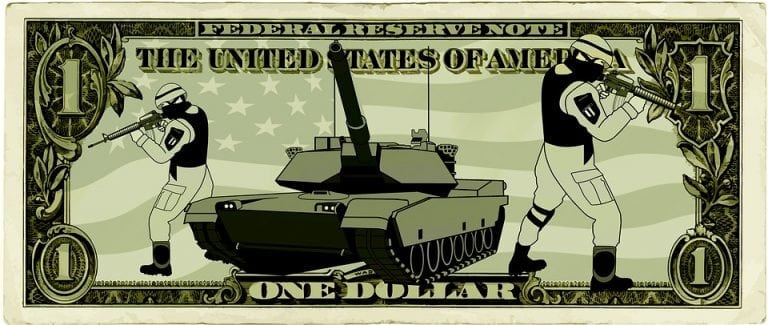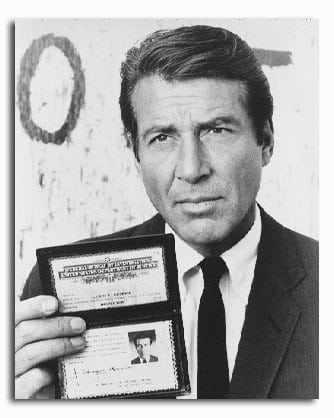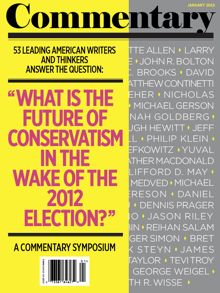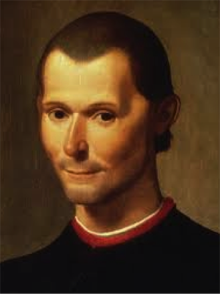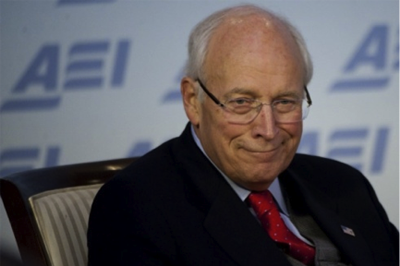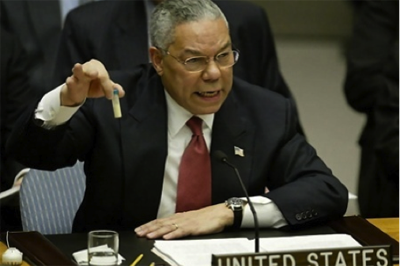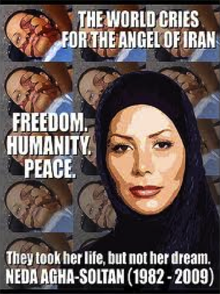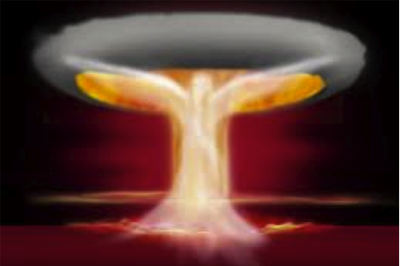
Downloadable SoundCloud podcast (also at the bottom of this page),
as well as being syndicated on iTunes and Stitcher Radio (links below)
A couple of months ago, someone sent me a link to a Revolutionary Anti-Imperial Movement (RAIM) article. It had just the right amount of sarcasm, with droll humor and I really enjoyed it. I spent the next couple of weeks reading their articles and was really impressed: here was a collective of writers that is committed, reasoned and does great research to support their arguments to make the world a better, more just place for every person on Earth.
I began to subscribe to their email alerts and now I really enjoy receiving them. In the interim, I contacted them about how we might be able to work together and RAIM suggested a written interview format, which you will find below.
RAIM went the extra distance with me to create the interview as an audio podcast, since we know there are a lot of fans out there who prefer YouTube, SoundCloud, Stitcher or iTunes.
I am very honored and proud of our transcontinental cooperation and I’m sure that followers of China Rising Radio Sinoland are going to be as impressed with RAIM as I am. Like me, I strongly encourage you to sign up for their email alerts:
https://anti-imperialism.org/revolutionary-anti-imperialist-movement-raim/
The Interview
Jeff J. Brown Question #1: Ramin Mazaheri, an anti-imperial journalist, just reported that Europe’s average GDP from 2008-2017 was a humiliating 0.6% per annum, a continental Lost Decade that makes Japan’s turgid 1991-2000 rate of 1.4% look like a runaway capitalist success story (https://www.greanvillepost.com/2018/02/01/eurozone-officially-achieves-lost-decade-media-refuses-to-admit-it/). Not counting the UK, which is a soul crushing Mini-Me Uncle Sam, how have Europe’s owners kept the lid on? Where is the popular revolt, the revolution, the barricades? I am a member of the Communist Party of France (PCF) and it has unfortunately been subsumed by what was once the French Socialist Party, which has now morphed into the Blairite “En Marche”, headed by the odious rentier, Emmanuel Macron. France’s once proud labor unions seem to have joined the PCF and Socialist Party into a downward spiral of irrelevance. As a dual passport holder, French and American, this is a bitter disappointment to me. I can understand US elites easily herding their sheeple into a fascist police state, since any socialist-communist influence was exterminated by the 1950s. But Europe is supposed to be fundamentally socialist, right? What’s going on?
Revolutionary Anti-Imperialist Movement (RAIM) Answer #1: We think it’s pretty clear that, since the financial collapse, Europe has been attempting to push all its contradictions to its periphery—responsibility for refugees, extreme austerity, crushing poverty. The problem is that this is not some vast subjugated hinterland. Go too far to Europe’s periphery and you run up against Russia proper, and allies of both Russia and China, and their respective interests. For instance, they’ve, to an extent, pushed Greece off the boat into China’s hands. Greece is important for the belt and road, and now disrupts the EU’s human rights grandstands and other deliberations, along with the so-called 16+1 group. And this isn’t some shadowy organization, this is soft power par excellence and the EU has no idea what to do about it. This is just one way in which the attempt to “keep it together” in one sector pulls others apart.
“The u.$ was like this virtually from the start, having cultivated a settler agrarian experiment, populated by petty bourgeois farmers and professionals resting on a cushion of slave labor…”
Historically, of course, Europe cultivated, in marxist jargon, a labor aristocracy—for some of your listeners who might not know, the labor aristocracy is a section of the workers who are better off compared, not only to other workers in the nation, but to the world proletariat—and this stratum of the workers, as Marx and Lenin complained, were always ready to defer to bourgeois chauvinism and share the plunder of empire. The u.$ was like this virtually from the start, having cultivated a settler agrarian experiment, populated by petty bourgeois farmers and professionals resting on a cushion of slave labor.
It took Europe a long time to catch up, obviously, but by the late 19th, early 20th centuries, it was clear that a stratum of the workers could be bought off. That kind of consciousness is far-reaching, it’s pernicious, and it has, in our view, led to the rise of another class, a “post-marxian phenomenon” as WEB Du Bois called it, of a class of wage-laborers with semi-bourgeois standards of living, and militant petty-bourgeois consciousness. This class tends to struggle with the bourgeoisie, mostly to distribute the spoils of neo-colonial robbery, but it also struggles against the world proletariat in the form of foreign workers and migrants—border walls from the populists and “buy amerikan” from the unions.
This idea of labor aristocrats as a class, we think, is very important, and shows just how deformed class relations become after centuries of plunder reinforced by racism and a global slave caste. This isn’t to say everywhere in the overdeveloped world is the same, of course. Two labor aristocracies can have different organic politics: The Rand War vs. 1968, for instance.
For listeners who might not know, the Rand War was one of the largest militant labor actions in history. It developed into full-scale war in some parts of South Africa. Long story short, it erupted over the South African bourgeoisie’s increasing use of black labor in the mines, and this, besides driving down white wages, insulted the white miners, and they demanded blood. They called for the strengthening of the color bar and the recognition of white unions, same as happened in the u.$.
In the late 19th and early 20th century with the union label stuff and excluding chinese workers. In this case, social democracy took the form of Apartheid. This is generally the instinct of the well-off workers of the global north, we think. On the other hand, there’s 1968. Communist and anarchist led, explosive, anti-imperialist. But nothing. 50 years later, the Rand War is more relatable to a lot of global north workers than May ‘68. But the same labor aristocracy that participated in May ‘68 also demonstrate against wars, they accept less police brutality, less imperial adventure. In this way Europe might not be equipped to “hold it together” like the u.$. is, having sharpened its knives on black and red skin. Euro-politics, even the most vicious right-wing stuff, is childsplay, to an extent, when amerikan history and amerikan politics are considered.
JJB Q#2: Europe is clearly a client continent of the imperial US, especially in foreign and economic policy, with NATO and Brussels, respectively, maintaining control. For years, after giving up on America, I clung to the dream that socialist-capitalist Europe would save the world, so to speak, but then came 2014’s Maidan and the Western overthrow of Ukraine, with the EU neck deep in color revolution. At that point, I gave up on the Old Continent too, as it slowly follows the US and the UK into fascist oblivion, just a generation behind. I guess we could even go back to the EU allowing the US in 1999 to bomb Serbia into rubble, using nuclear weapons in the form of depleted uranium, right in the heart of Europe. Europe could do so much good in the world, instead of hanging onto Uncle Sam’s shirtsleeve and reliving the gory glory days of colonial genocide and plunder.
Short of a communist-socialist revolution, can Europe clean up its act and become a constructive player on the world scene?
RAIM A#2: Can Europe become a constructive player short of revolution? Perhaps not. A lot of sincere anti-imperialists think that. Take Samir Amin. He often talks about how a “social Europe” ought to decouple from the u.$., but it just seems fantastical. Europe with the u.$. is bad, but the last time Europe was on its own, it started world wars, murdered hundreds of millions, carved up the world. We talk about Europe being a u.$. client, but really when you think about it, the u.$. is too blind to see that the Europe they made is no longer theirs. The EU GDP is roughly as large as the u.$., its standard of living is higher on average, more services. And since we know that GDP is not value produced, but value captured in the global value chain, Europe then is at least as big of a parasite as amerika. So the u.$. certainly menaces the global south militarily and clandestinely, eating their lunch all the while, but Europe is at the table and its helping is just as large. Wealth is a crazy thing, and once refugees, or other countries, or trade deals start to really threaten that, the sound of goose-stepping probably isn’t far off.
JJB Q#3: Do you think that China’s economic and cultural bridge building, with the Belt and Road Initiative, could be a catalyst in making this happen, by helping pull the PRC, Russia and Europe closer together into greater cooperation?
RAIM A#3: Absolutely not. Imperialism is a zero-sum game, if a market is dominated by one sphere, it’s lost to another. This is what makes wars of redivision necessary when economic war has been exhausted. This is why the big players prowl the seas with aircraft carriers. All the countries Europe has driven away and scorned and punished, like Hungary and Greece, countries with diametrically opposite regimes (Hungary with the semi-fascist Orban, and Greece with the social democrat [traitor] Tsipras) are finding an all-weather friend in China, who doesn’t care about internal politics, doesn’t care so much about the viability of lines of credit, they care about stability for investment. And the sectors, ports etc. that Europe is losing to China, represent real tangible capital and logistic openings that they won’t see back. This will only threaten Europe’s share of the global pie, and make war more likely. “Buy German” might go from an economic reality supported by German policy to get over on their European competitors, to a war cry with real violent consequences.
JJB Q#4: What can Europeans do about their perverse electoral systems? They are not the obvious sham that is America’s, but the results are almost always the same: either the conservative, centrist or liberal wings of the Corporate-Capitalist Party always end up running the show. After initial communist-socialist electoral success immediately after World War II, the closest we came to any real power was socialist François Mitterand offering his ear to PCF’s Georges Marchais in the early 80s. One factor seems to be the Gladio armies, which have committed untold numbers of false flags, terrorist acts and black ops to destroy any left of center politician gaining popularity. In fact, they mobilized aggressively, when communists won serious power in postwar Europe.
Please express your thoughts on how anti-imperialists could eventually sit in positions of elected power, or are revolution, then adopting democratic centralism, democratic dictatorship of the people and owning the means of production the only way?
Looking at countries like Venezuela, Ecuador, Bolivia, Mozambique, Cambodia and others, which are adopting social(ist) democracy and struggling to prevent Western sabotage and subterfuge, the previous option seems problematic.
RAIM A#4: In Europe, electoralism is certainly much less a sham than in the u.$., but anti-imperialism is just as neglected. You have nowadays interesting spats in the House of Commons, or the Dail Eiraenn by social democrats about u.$. and british and french terror campaigns against the people of syria or whatever african nation france is bombing this week, but it doesn’t stop the bombs. Only mass action, occupation of bases, jamming roads, violence, in short only when the war becomes too expensive to fight at home, will it end abroad. And electoralism has a part to play in that, a small one, but a part.
JJB Q#5: Thanks to the resolute leadership of Vladimir Putin, Russia has risen from the ashes of being socially, economically and politically sodomized by Western elites, 1990-2000 (https://www.veteranstoday.com/2018/01/13/477504/). The numbers don’t lie. Russia’s transformation is up there in the “miracles” league. Western propaganda gives the impression that capitalist opposition is on the verge of gaining power, yet these parties only have around five percent of the votes, with the Communist Party of the Russian Federation (CPRF) being the second biggest political force, after Putin’s Unity Party. The CPRF’s presidential candidate, Pavel Grudinin seems like a “Tony Blair” turncoat to the communist cause. According to Western media, he is a millionaire who rejects communism (http://abcnews.go.com/International/wireStory/russias-communist-nominee-president-shuns-party-dogma-52733474). Is this just more Western propaganda, or true? What’s going on?
RAIM A#5: The CPRF hasn’t been a credible threat for a very long time, and considering the stagnation it was born out of, it isn’t surprising they would run a millionaire compromise candidate with no communist credentials.
JJB Q#6: In the future, do you think it is possible that the CPRF gains power and governs along the lines of Leninism-Stalinism? Or are the West’s Russian oligarchs and control of the Russian Central Bank too much of a barrier?
RAIM A#6: Short of a coup, it’s hard to see the CPRF gaining anything important in Russia. Short of a coup it’s hard to see any party gaining anything.
JJB Q#7: it’s hard to figure out how many vestiges of Soviet communism and socialism still remain in Russia’s economy. If a Cuba-DPRK model is “10” on the communist scale and an Indonesia-US is a “10” for capitalism, where does Russia lie today? Is it moving in either direction?
RAIM A#7: We’ve seen this question asked before, but it proposes a paradigm that, we believe, misses a fundamental aspect of socialist construction. One can point out that in the post-Soviet bloc there continued to exist state industries and farms all over the place. In Romania they maintained their socialized healthcare system, despite its degradation, and in Belarus and Russia, state farms continued to exist. Beyond that not much changed in the transition from the Soviet to Russian militaries, aside the boundaries in which they operated, but this tells us more about the changes within the Soviet state than within the Russian one.
See, the problem is that these institutions have a political content, and a class character, not just a physical architecture. While the state may own them, and some left-liberals and right-wing libertarians in the u.$. may suggest that state ownership implies socialism, that does not make them socialist. These remnants, where they exist, only do because they have either been politically retooled for a different purpose—existing for and reproducing capitalism and capitalist ideology—or because the state and economy are too backward or disorganized to homogenize them. In Russia it is, for the most part, the former. This process began long before 1991, and we need only look at the fates of the various Soviet bureaucrats and managers to see this. Many of them, such as the CPRF’s new friend and presidential candidate, transitioned seamlessly from “socialist” state farm manager to private farming magnate and millionaire. Plenty of people see in the state ownership of Russia a residual socialism, but it’s pretty clear to us that state ownership in Russia is an outgrowth of peripheral capitalism, of a country whose economy has very little to rest on outside of the intervention of the state.
JJB Q#8: What are your impressions of 21st century China? Having lived here for 15 years, I empirically think that to this day, it is very much a communist-socialist country, since it fiercely controls the means of production, strictly practices democratic centralism and people’s democratic dictatorship – what I call the three-legged stool of socialism. This is in direct contradiction to Westerners, who loudly call China capitalist, and fraternal groups like the World Socialist Website (WSWS), which cannot write an article about this country, without trashing Baba Beijing (the CPC and its leadership) for betraying communism-socialism.
I wrote in The China Trilogy that upon the death of Mao Zedong in 1976, Deng Xiaoping had two choices to make. One was to maintain a path of proud independence from global capitalism and continuing to work in its pure communist economic system, while amassing national wealth and prosperity through ongoing industrialization, technology innovation and increasing agricultural production, like happened 1949-1978.
The other option was to maintain the aforementioned three-legged stool, while opening up the country to the world economy, in order to rapidly create the national and popular wealth needed to eventually transition from socialism into rich communism, rich communism always being the stated goal of Mao Zedong. Deng’s logic was that for 500 years, the West brutally exploited the world to amass stupendous wealth, via the naked theft from capitalism, colonialism and imperialism. Not wanting to take that destructive path, Deng opted to catch up, as it were, to rapidly create this level of prosperity via “socialism with Chinese characteristics”.
In China, there is a plurality of citizens who think Baba Beijing should have taken the long road to wealth creation and maintained its communist system. To this day, there are thousands of locales, villages and towns that have maintained a Maoist way of life and general nostalgia for Mao and pure communism runs deep across many sectors of society, including billionaires like Jack Ma. But, a large majority fully supports Baba Beijing’s governance, with its policies of creating a rapidly growing middle class, national and personal wealth. At the same time, there are serious popular worries about social and economic disparities between the millionaire-billionaire, white collar-middle- and worker-farmer classes, as does the CPC, which is working hard at policy and taxation to bring the country’s GINI index back down below 0.40 (http://chinarising.puntopress.com/2017/11/19/china-versus-the-west-another-shocking-comparative-vignette-china-rising-radio-sinoland-171119/).
What is your opinion? Do you think China should have stayed the course and become a continental behemoth along the Cuban or DPRK model, to achieve prosperous communism over the long run, or its current model of more rapidly creating wealth, into order get to rich communism, as proposed by Marx for the post-industrial West?
RAIM A#8: We think it’s pretty clear that China has crossed a dangerous threshold from which it is difficult, if not impossible, to return short of a revolution—either from within the party itself or outside of it, but a revolution nonetheless. You’ve talked about Deng making some tough decisions, but these were more than decisions about whether or not to get rich. We’re talking about the de facto privatization of land, a problem that now ties into corruption; it’s the shut-down of state-held corporations, causing immense unemployment and suffering; it’s support for “international rule or law” that demands naval bases to protect “free trade”, precisely what the imperialists believe they are doing. It also entails competition for markets—one thing no one could ever have accused Mao’s China of doing was capital export imperialism, and using underdeveloped economies to offload polluting industry and industrial overcapacity from China.
Today Xinhua brags that China is powerful enough to export its dirtiest industries, and to relieve overcapacity (one of the symptoms of capitalist crisis) to Africa and Latin America. China is now an aircraft-carrier plying, troop-deploying, base-building superpower, and in the era of imperialism, this means that, to some extent, China is also cutting itself a piece of the global pie. Obviously, a slice minuscule in comparison to the west’s, but also big enough to get them scared about the future of the spoils.
As for nostalgia, people can have all sorts of nostalgia—there’s immense nostalgia for communism everywhere it no longer exists—but nostalgia alone cannot translate into the building of a new mass party or the revitalization of existing ones. You can find polls that say 60% of Russians would like to return to 70’s Brezhnev levels of consumption, but 60% of the population don’t vote communist. Even Mr. Putin, an anti-communist if there ever was one, can every year call upon the memory of Soviet war dead, or parade the army in Soviet kit, but this is more or less a cynical ploy to digest Soviet nostalgia for the present ultra-conservative experiment in Russia. The same can be said for China—people flock by the hundreds of thousands to little commune villages that recreate what’s seen as the simple and politically pure life of the workers and peasants during the Great Proletarian Cultural Revolution—but when real slogans start flying, when Maoists call for the overthrow of corrupt officials, they are jailed.
Some with hefty sentences. For instance, Bo Xilai—a rightist, but one to the left of those in power—advocated the recollectivization of factories and farmland, reviving Cultural Revolution-era slogans and stating that socialism was not something that could be constructed post-prosperity, and he gained many enemies among the right-wing elites. He is now serving a life sentence on what were, especially for China, dubious corruption charges. It has been suggested—and we tend to agree—that his arrest was politically motivated, concerning his left-wing policies and agitation rather than corruption. It’s not that the party doesn’t recognize corruption—they have their own anti-corruption drive, because corruption is such a problem it’s slowing down GDP growth—but popular calls from below become dangerous.
The GPCR was all about popular calls from below, but the generation before Mr. Xi dubbed the GPCR an error and even a crime. So if we merely had two factions, or merely a misguided party clique taking the capitalist road, putting too much stock in vulgar ideas of productive forces theory—this happened in Cuba, it can be excused (it must be corrected, but it can be excused)—but we have a whole party—or at least a substantial portion of it—in the case of the CPC, taking the capitalist road and suppressing progressive and Maoist calls for popular change. The government answers with bourgeois reforms and a political fist. We think for the time being, unless something drastic changes, China is lost to the capitalist road.
Anyone can utilize economic planning and state controls—Saudi Arabia, South Korea, and France utilize indicative planning, even the u.$. to an extent—it just isn’t enough. We talked about the CPRF and their billionaire candidate, and you mentioned Jack Ma, this is precisely the same problem in China, except China is being led by all these bourgeois logics—growth for the sake of growth, market efficiency, “middle-class” politics—and they are truly poisonous.
The structures that crystallize after these concepts become law, and even before that when the laws of capitalist production operate even before they’re recognized (I’m thinking about a bubble-gum magnate who arose in China under Deng, selling hand-wrapped candies, and is now a billionaire party-member), the structures bourgeois logics crystallize into are hard to destroy, and we don’t foresee them being broken down in China any time soon. What’s more likely is imperialist war to redivide the world between the big powers, the u.$, Europe, China, Russia etc.
And what will come out of that is anyone’s guess. Socialism, hopefully, for the world. But that is dependent on our action, we must not discount ourselves and our comrades as agents in worldwide affairs. However, this requires hegemony, and as of yet we are still in the beginning phases of building our own.
JJB Q#9: As someone who has late in life become a communist-socialist, the huge philosophical rift between Trotskyites and anti-Trotskyites totally baffles me. It seems incredibly destructive and divisive, and it is surely used by the world’s capitalist owners to keep the movement weak and ineffective, much like they do with Sunnis and Shias in the Muslim world, playing the timeless imperial game of divide, conquer, exploit, rape and plunder.
Do you think it will ever be possible for an eventual reconciliation? How, why or why not? If not, can communism-socialism ever happen in the capitalist West, with this infighting still in place?
RAIM A#9: We’ve always been critical of dogmatism. There’s no question that the counter-intelligence agencies use left factionalism to atomize us and make us irrelevant, but most leftists don’t need the state’s help to be irrelevant. Very often, however, these splits are over really important, ideological, but also practical points. Although on an individual basis, let’s say, we can work with Trotskyists. Good people, usually very studious and compassionate. As a whole, Trotskyism is a dead tendency, very little life, very little imagination. Trotsky had some wrong ideas, and with hindsight his differences with Stalin, most of them, were petty.
Trotskyists have been, as a whole, some of the least productive leftists. But trotskyists in the third world are very productive. Some extremely misguided, but productive. In the first world, they mostly sell newspapers and engage in contrarianism and historical debate, and embrace chauvinist positions centering the white workers of the metropolitan countries as the vanguard of the world revolution. Of course, Trotsky did not do that. In fact, in conversation with amerikan Trotskyists in exile in the 30’s, Trotsky very clearly stated that the u.$. Workers, in relations to non-whites and blacks especially, were bourgeois hangmen. However, during the second comintern congress, Trotsky did pen the statement calling for the colonial masses to postpone their revolution because European workers were soon [to] take power and would need their colonies. This was a terrible error, one I think he corrected later in life.
It’s telling, though, what tendencies the counter-intelligence forces use to dissemble. Back in the day there were Trotskyist and Luxemburgist journals set up entirely by the FBI and CIA to spread factionalism and denounce national liberation. But Maoism, early on, was also a favorite. The Ad Hoc committee was an FBI operation to split the CPUSA back when it was still a credible threat. But later, when large Maoist organization were forming—the Black Panthers, the Revolutionary Communist Party, the Progressive Labor Party etc., then it had to crush them. There are tendencies that isolate themselves—Hoxhaists for instance, at least in the metropolitan countries, Trotskyists are another, Luxemburgists another—out of a jaded cynicism, or a hatred or fear of the real masses who will build revolution—the oppressed nations, migrants, the lumpen—and as long as they gang up in cynical clubs they will be useless. On an individual basis they can be worked with, can even be converted. But we do tend to think there are some tendencies that are a dead end, especially if they do not denounce imperialism unequivocally, which many tendencies fail to do.
For a lot of reasons, we don’t see revolution on the horizon for the west. Crisis certainly is, and every crisis is an opportunity. In-fighting or not, we think it will get worse before it gets better. The silver lining is that the u.$. Is growing weaker, more isolated, less resourceful. Luckily for the rest of the world, this will relieve some of the horrific pressure the u.$. exerts on them. On the other hand, this might mean a more vicious form of u.$. Internal terror against leftists and oppressed nations.
JJB Q#10: Please tell us the core websites that you refer to each day, for current events, news, inspiration and research. Outside of the classical lexicon of communist and socialist literature and writings, can you recommend any less well-known books and publications – besides RAIM and CRRS, of course.
RAIM A#10: Beyond the usual progressive websites people tend to frequent, and some of the world newspapers we might have in our peripheral vision on the daily, including some not-so-progressive ones that still cover western imperialism well, we’re very impressed with TeleSUR, online and televised. Pambazuka News is another. We appreciate the redspark.nu project, collecting news on various maoist struggles worldwide. MIM(PRisons) publication, Under Lock & Key is important. Burning Spear, the organ of the African People’s Socialist Party is very informative. Liberation News and World Socialist Website are good from time to time. Counterpunch, more often than not, has some good stuff when it isn’t pandering to bourgeois NGO feeling. We’re also rather impressed recently with Monthly Review. It’s always published the development economists, like Prabhat Patnaik and Samir Amin, but in the last few years it’s been making room for Third-Worldists, or what people would call Third-Worldists in the leftish amerikan vernacular.
Zak Cope, John Smith, the kind of political economy of imperialism that we endorse, that lifts the curtain, as it were, on why amerikans and Europeans command such a slice of the pie and what it does to their consciousness. And on that number, we very much recommend the work of Dr. Cope’s Divided World Divided Class and Dr. Smith’s Imperialism in the Twenty-First Century, we recommend Samir Amin. We recommend J. Sakai, especially Settlers, but everything in his small corpus is really worth reading. We published a little book, a republish of a pamphlet from the 70’s on Marx & Engels views of imperialism and the labor aristocracy with a fantastic introduction by Zak Cope and Torkil Lauesen ( Marx & Engels: On Colonies, Industrial Monopoly, and the Working Class Movement ) and a follow-up book of the same scope from the works of Lenin is forthcoming from Kersplebedeb, a fantastic publisher, all of Kersplebedeb’s books are worth a read. Political economy is a big thing for us, so we mostly recommend people try and grasp that before anything. At least in a basic way.
JJB signing out: In fraternal solidarity, brothers and sisters of Revolutionary Anti-Imperial Movement, thank you for sharing your experiences and knowledge on China Rising Radio Sinoland!
RAIM signing out: Thanks for having us, very glad to join you south of the Tropic of Cancer.
 In his zeal to prove to his antagonists in the War Party that he is as bloodthirsty as their champion, Hillary Clinton, and more manly than Barack Obama, Trump seems to have gone “play-crazy” — acting like an unpredictable maniac in order to terrorize the Russians into forcing some kind of dramatic concessions from their Syrian allies, or risk Armageddon.However, the “play-crazy” gambit can only work when the leader is, in real life, a disciplined and intelligent actor, who knows precisely what actual boundaries must not be crossed. That ain’t Donald Trump — a pitifully shallow and ill-disciplined man, emotionally handicapped by obscene privilege and cognitively crippled by white American chauvinism. By pushing Trump into a corner and demanding that he display his most bellicose self, or be ceaselessly mocked as a “puppet” and minion of Russia, a lesser power, the War Party and its media and clandestine services have created a perfect storm of mayhem that may consume us all.— Glen Ford, Editor in Chief, Black Agenda Report
In his zeal to prove to his antagonists in the War Party that he is as bloodthirsty as their champion, Hillary Clinton, and more manly than Barack Obama, Trump seems to have gone “play-crazy” — acting like an unpredictable maniac in order to terrorize the Russians into forcing some kind of dramatic concessions from their Syrian allies, or risk Armageddon.However, the “play-crazy” gambit can only work when the leader is, in real life, a disciplined and intelligent actor, who knows precisely what actual boundaries must not be crossed. That ain’t Donald Trump — a pitifully shallow and ill-disciplined man, emotionally handicapped by obscene privilege and cognitively crippled by white American chauvinism. By pushing Trump into a corner and demanding that he display his most bellicose self, or be ceaselessly mocked as a “puppet” and minion of Russia, a lesser power, the War Party and its media and clandestine services have created a perfect storm of mayhem that may consume us all.— Glen Ford, Editor in Chief, Black Agenda Report 
